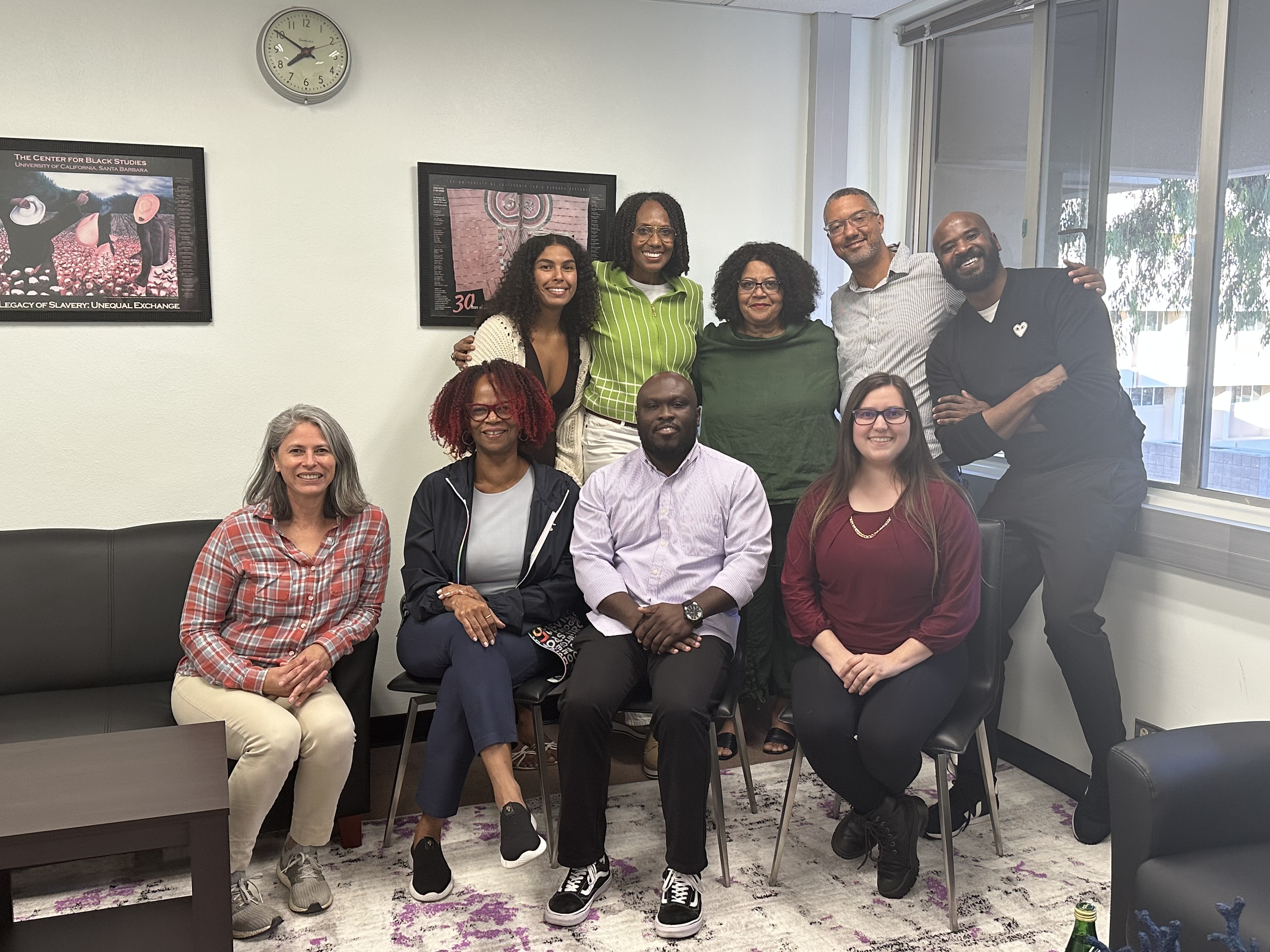Mission Statement
The UCSB Center for Black Studies Research has two primary missions.
Academic Mission
The academic mission of the Center for Black Studies Research is to support interdisciplinary research on the social, political, historical, cultural, and economic experiences of communities throughout the African Diaspora. The Center is dedicated to developing individual and collaborative research projects by securing and administering grants for faculty and student scholars. The Center also focuses on disseminating new research through a variety of mechanisms: working papers, edited volumes, academic journals, conferences, and colloquia.
Public Mission
The public mission of the Center is to support several levels of university-community engagement. First, we are dedicated to creating dialogues within our field and within the university on critical issues confronting our society. Second, the Center co-sponsors a variety of activities in the Santa Barbara community and on campus. For more than 10 years, the CBSR has co-sponsored the Martin Luther King Jr. Committee of Santa Barbara. We are proud to co-sponsor such important events.
Center for Black Studies Research
The Center for Black Studies Research sponsors fellows, research projects, workshops, guest speakers, and symposiums.
The Center has six primary research initiatives and research clusters:
-
Broadening participation in STEM
-
Black Radical Traditions
-
Race and the Politics of Space
-
Intersectional Justice
-
Engaged Scholarship
-
Data Science
Statement of Solidarity
Silence has never been a solution to a problem. Genocide of African/Black Americans has occurred in different ways throughout history. Current events remind us of a constant story that keeps repeating itself over the past, present, and future.
The Center for Black Studies Research stands in solidarity against violence, discrimination, marginalization, intolerance, negative attributions, bigotry, and the historical genocide of Black people throughout the diaspora.
We have opportunities to build powerful relationships through, by, and with Black communities; however, we must first recognize and see human beings who are different from us as subjects and not objects to create equal opportunity and a socially just world. More often than not, this must occur through actions that may be perceived as civil disobedience.
- Dr. Sharon Tettegah

Front row (left to right) Marselina Ortiz (CASU Financial & Procurement Coordinator), Allison Clark (IChange Institutional Diversity Program Manager), Ebenezer Larnyo (Postdoctoral Scholar), Karla Partida Torres (CASU Personnel & Administration Coordinator)Back row (left to right) Lyla Washaha (Administrative Support Assistant), Tracey Goss (CASU Management Services Officer), Sharon Tettegah (Director), Charles Terry (Postdoctoral Scholar), Waverly Duck (Associate Director)